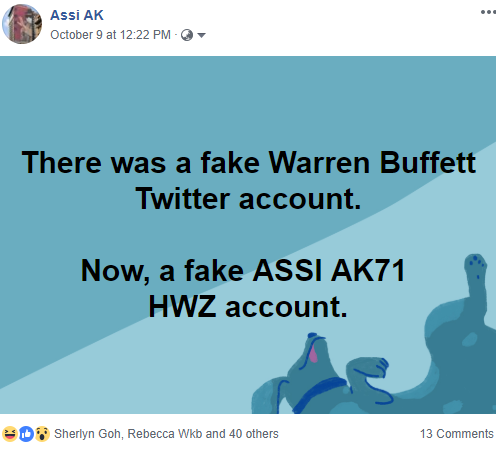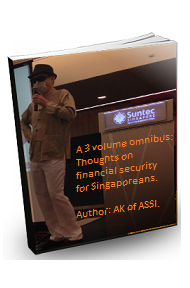It is a strange fact of life.
If we are poor and need some financial assistance, generally, the banks wouldn't want to lend us any money. When we start showing signs of being able to make some money on a sustainable basis and possibly no longer need financial assistance, the banks will want to lend us money.
I don't know about you but I have received so many cheques from banks in the last few years for amounts between $5,000 to $10,000 that I have lost count. They are practically stuffing money in my face. All I had to do was to bank in the cheques and the money would be mine to use. So good of them, right?
More recently, I got an OCBC 360 account and since one of the conditions to get more interest income is that I must charge $400 to an OCBC credit card each month, I applied for the cheapest available card, the OCBC Frank VISA card. A friend who found out told me that the card is for young graduates who just joined the workforce and not for established old gits like me who are making more money. Really? Look at the credit limit they have given me!

It is ridiculous! I have never had such a high credit limit for a credit card ever! No, my earned income has not had any increase in the last few years. In fact, it could have declined. Such is my life. My last credit card application approved by Citibank only had a credit limit of some $14,000. So, I guess OCBC is trying to encourage me to spend more money and, perhaps, even to take my time to pay them. OK, they are not being ridiculous. They are being nice to me. My apologies.
Take my time to pay them? Yes, of course. It is not just OCBC as, generally, the banks are very understanding about how we might not be able to pay in a timely manner.
Tell you a secret, if I could lend anyone money and charge an interest rate of 18% to 24% per annum, I wouldn't be bothered to invest for income in the stock market! "Lending for income", in this case, sounds like a better deal. Don't you think so?
Of course, to regular readers, this is not a new topic in my blog. I have blogged about it often enough and from various angles. I was encouraged to blog about it again by a friend who shared an article with me last night:
A
"33-year-old is an honours degree holder and a white-collar professional. He estimates that he has paid out about S$70,000 in interest over two years on his original loan amount that was S$20,000. He has been forking out S$4,000 a month, or 88 per cent of his take-home pay, to pay interest on a loan he took from a licensed moneylender.
And it all started because:
"The banks kept on sending me invitations to sign up for credit cards, and at one point, I was using 10 different credit cards. I lost track of my spending,” he said."
Read the full story here:
inSing.com
So, what is the moral of the story? We need to learn a secret and it is
the secret to avoiding financial ruin.
Together with the two related posts below, publishing this blog post means that I have given proper acknowledgement to all the three local banks in their efforts to help improve my cash flow.
Now, who says that AK is not impartial? Who? Who?
Related posts:
1.
Extra cash for better control of your finances.
2.
Get on top of your finances.






























